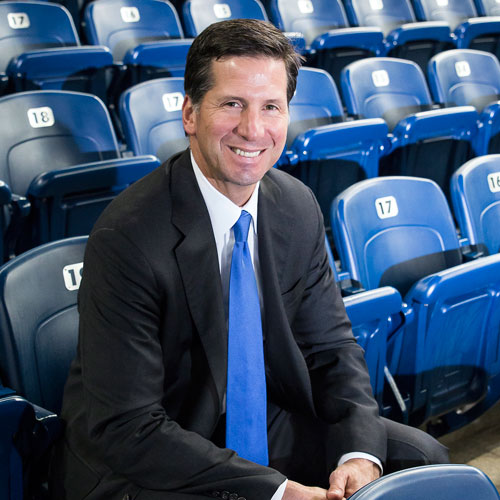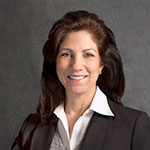Ask Alberto Ortega why community relations is so important for a multinational company like Sodexo, and his answer might surprise you. Faced with that question, corporations often have a dry and practiced answer, using words like “giving back,” “providing solutions,” and “public partners.” But that’s not what Ortega is saying.
“What I love about what we do is that it creates a shared value model,” he says smiling. “Call it what it is. When we partner, it’s a win for us, and it’s a win for them.”
Sodexo is a global leader in sustainable, integrated facilities management and food service operations with its North American Headquarters in Gaithersburg, Maryland. It serves sectors including private corporations, government agencies, schools, hospitals, and military bases. Ortega is Sodexo’s director of community relations. A Chicago native, he’s been key in creating Sodexo’s extensive partnerships throughout the city with groups he’s already connected to outside of the workplace. He serves on the Leaders Council of Chicago United, regional advisory board of LIFT-Chicago, board of La Casa Norte, and cabinet of United Way of Metropolitan Chicago. He is the vice president of ALPFA Cares and on the leadership council of Chicago Commons. He has been honored by the Hispanic Association on Corporate Responsibility (HACR), Chicago Jobs Council, and Diversity MBA and Latino Leaders magazines, but he doesn’t focus on his accolades. “I live here,” Ortega explains. “I care about Chicago. I want to make it a better place.”
Sodexo’s business lends itself well to Ortega’s strengths in networking and promoting partnerships. Its extensive offerings that support events and public meeting spaces mesh well with Ortega’s view of what a good business can do by partnering with nonprofits and small businesses: help people reach their potential.
To do so successfully, Ortega uses a system he calls SAM, which stands for scan, assess, and magnify. He begins by scanning an environment for opportunity, then assesses how it aligns with business goals, and finally magnifies opportunities into possibilities that grow the business. This ultimately allows for a positive impact on the community. He’s making strides.
“[Giving back] is about supporting business development, promoting the brand, and developing value within our communities. Any business that wants to grow needs to care.”
One of Sodexo’s major partnerships is with LIFT-Chicago, which helps people train and network for jobs in their communities. Sodexo supports LIFT-Chicago’s annual fund-raiser and tenaciously works to help the organization accomplish its mission. In return, Sodexo’s brand becomes well known to fund-raiser attendees, among them, Chicago business leaders and decision makers. Another, similar partnership is with La Casa Norte, which gives a home—“It’s a home, not a shelter,” Ortega emphasizes—to youth and families experiencing homelessness. “La Casa Norte’s goal is to end hunger; that aligns perfectly with Sodexo’s goals.”
The SAM model, which Ortega began in Chicago, is expanding within the company. Sodexo took notice of Ortega’s work and asked him to work with other company leaders in cities across North America—among them Atlanta, Los Angeles, and New York—to promote networking as Ortega has. Ortega stresses that this isn’t just a way for the company to give back, though that is certainly a benefit. There is a clear value for the business. “It’s about supporting business development, promoting the brand, and developing value within our communities,” Ortega says. “Any business that wants to grow needs to care.”
When Ortega was new to the business, he focused on collaborating with leadership on some new ideas. He had to prove that his ideas were not just tenable, they would also be profitable. That may be easier going forward since Ortega has helped the company secure enviable contracts with some top colleges and universities in the region by leveraging diversity and inclusion as a differentiator. The continued expansion of Ortega’s community partnership goals will allow Sodexo to leverage the power of the collective, he adds. Executive sponsorship is key to enterprise-wide expansion.
There is still much to do. Ortega travels frequently and is working on creating the structure, processes, and governance framework to direct how people across the nation can establish relationships like those he’s built in Chicago. Rohini Anand, Sodexo’s senior vice president and global chief diversity officer, asked Ortega to create a sustainable model of the program. Each region has its own set of leaders and management styles, and Ortega’s model needs to be adapted to all of them. Ortega doesn’t seem worried. He has the experience, the SAM system, and the power of the collective on his side. Another key to his success is that he’s very honest with his coworkers about what he is trying to do. “We’re making strategic partnerships,” Ortega says. “We’re improving our communities, and that all comes back. We all grow stronger together.”

